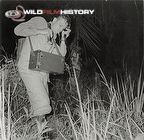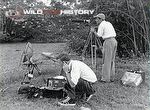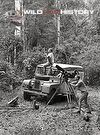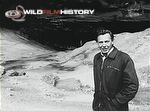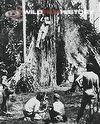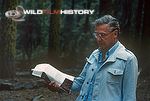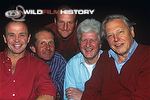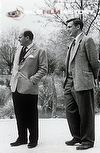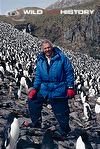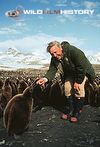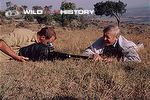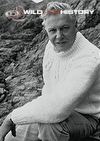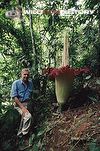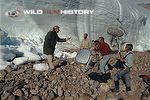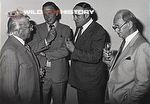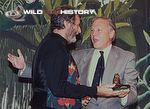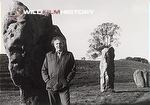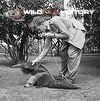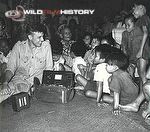David Attenborough
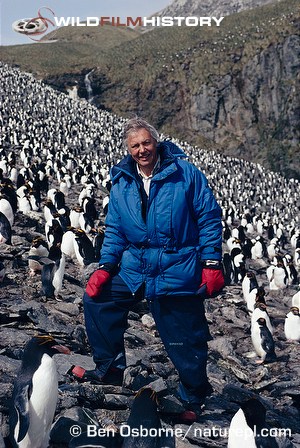
David Attenborough's broadcasting career began in 1952, when he joined the BBC as a trainee producer. His early work involved producing live studio programmes on a range of non-fiction subjects: from ballet and knitting, to religious programmes and archaeological quizzes.
His first natural history series, The Pattern of Animals, covered camouflage, warnings and signals, and courtship displays and was presented by Sir Julian Huxley. The limited budget of the BBC confined the series to the studio and restricted the animals featured to those of London Zoo. However, as a result of the programme, David met Jack Lester, the curator of London Zoo's reptile house, and the two joined forces to create a series about collecting animals for the Zoo. Zoo Quest allowed the pair to go travelling together to exotic places and combined footage of animals in the wild with live studio sequences. Jack Lester presented the first programme but then became ill and was unable to present the second - David stepped in at the last minute and the rest is history.
After completing the series Travellers' Tales, David Attenborough became more and more interested in social anthropology. So much so, that he decided to devote more of his time to studying the subject at the London School of Economics, although he still managed to work for the BBC while doing his degree.
In 1964 BBC2 was launched, and David Attenborough was invited to become the Controller of the channel when it was less than a year old. He introduced colour broadcasting to Britain in 1967 and shortly after was made the Director of Programmes for both BBC1 and BBC2. However, in 1973 he resigned from management to make a return to programme production with the series Eastwards with Attenborough, set in southeast Asia.
Life on Earth was the first of David's epic Life series, and told the story of the evolution of life on the planet within thirteen 50-minute programmes. At the time, it was the most ambitious series ever produced by the BBC's Natural History Unit. Universally acclaimed by both press and public, it remains to this day the series that David is the most proud of and that has given him most satisfaction. In 1984, The Living Planet was screened, which surveyed the natural world from an ecological point of view and this was followed by the conclusion to the trilogy in 1990 - The Trials of Life, which dealt with animal behaviour.
In addition to these major series, he has also presented, written and narrated many shorter ones and one-offs and has more recently made several series dealing with sections of the natural world: The Private Life of Plants in 1995; The Life of Birds in 1998; The Life of Mammals in 2002; Life in the Undergrowth in 2005; and Life in Cold Blood in 2008.
In 1982, David Attenborough received the Panda Award for Outstanding Achievement at Wildscreen and was knighted for his services to broadcasting in 1985.


